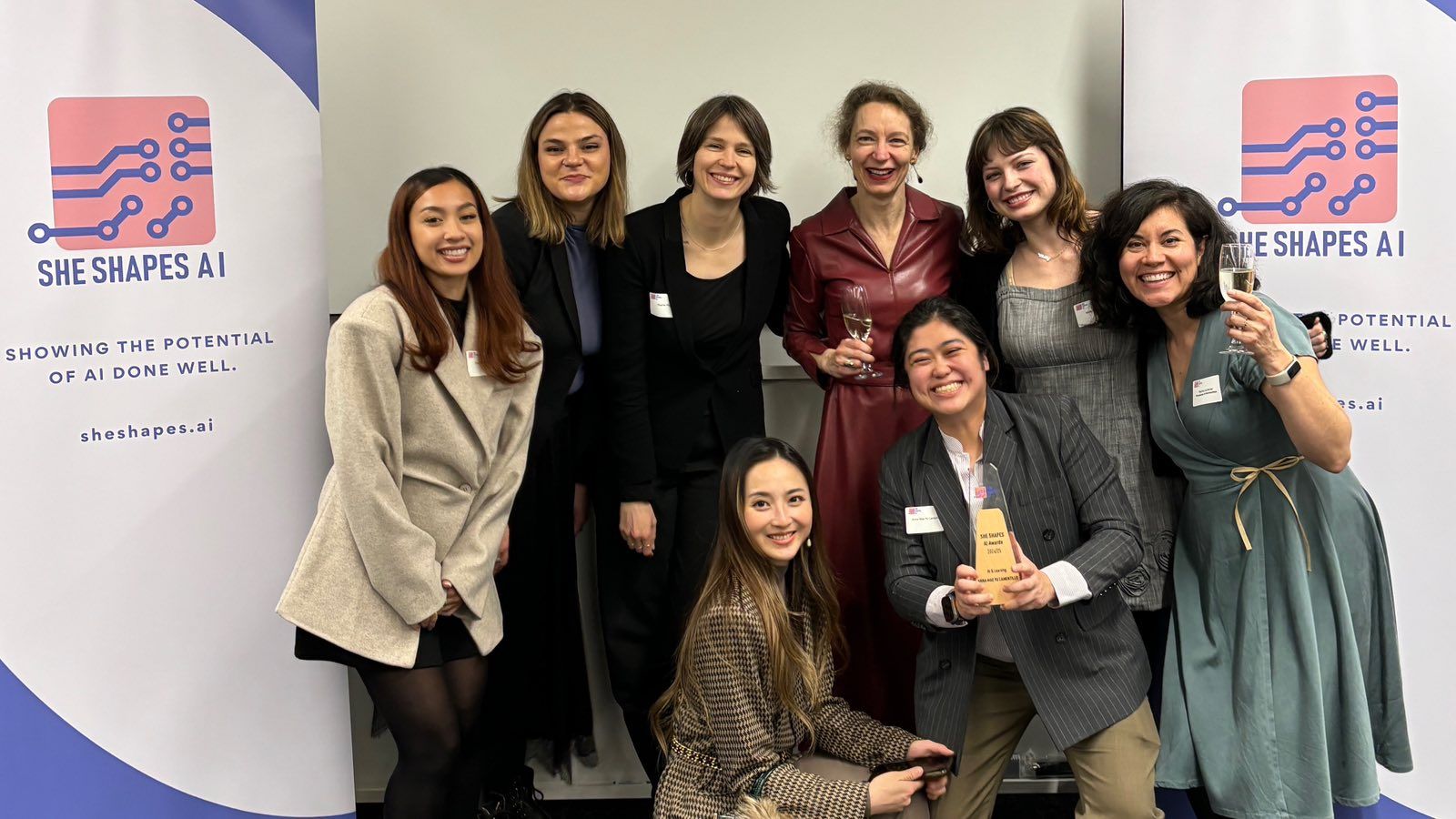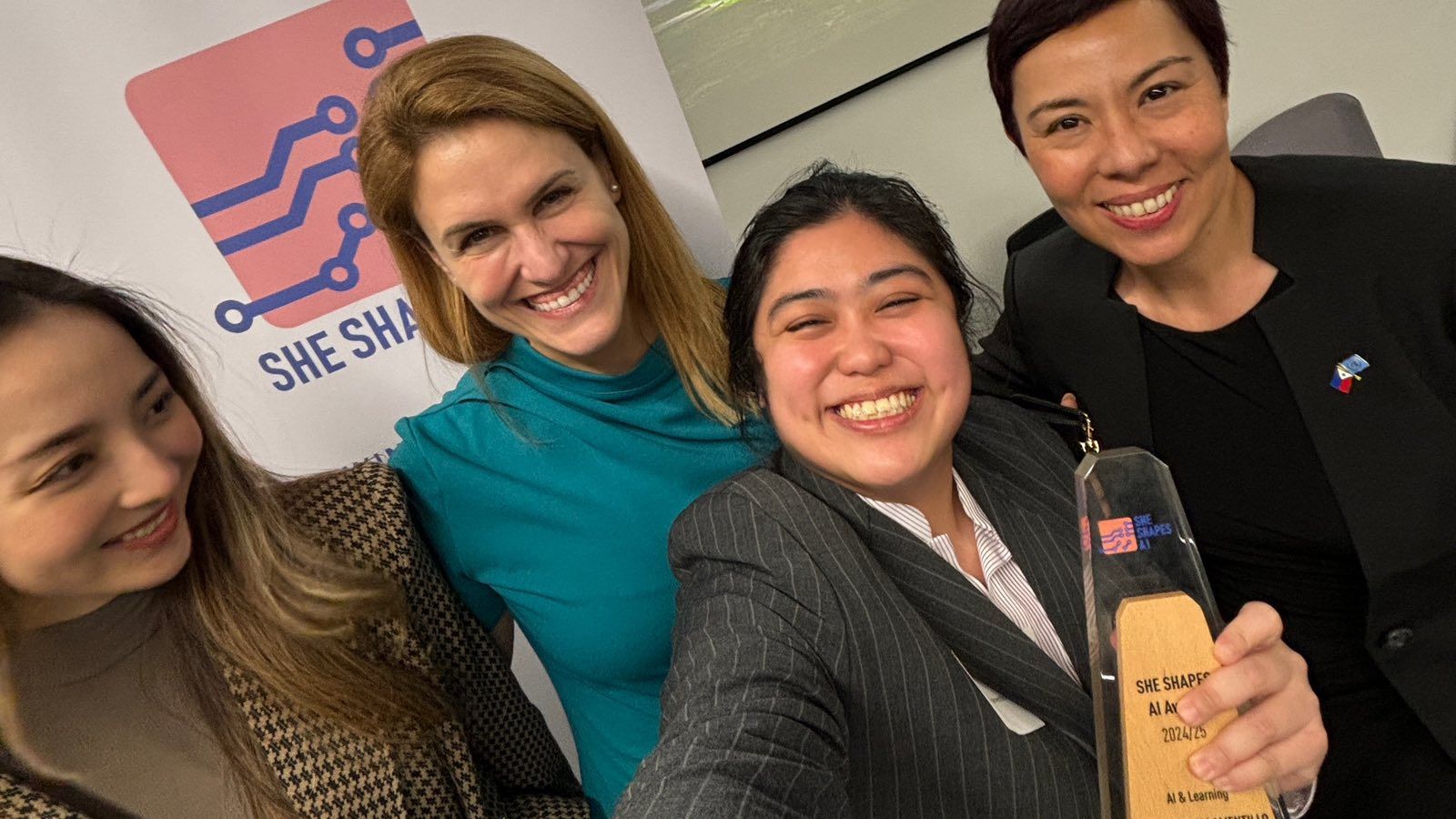Lamentillo honored with She Shapes AI Award for AI & Learning
Anna Mae Yu Lamentillo, founder of NightOwlGPT and columnist of Manila Bulletin, has been recognized with the AI & Learning Award at the inaugural She Shapes AI Global Awards, honoring her pioneering work in linguistic preservation and digital inclusion for marginalized communities worldwide.

The award was presented at University College London (UCL) by Professor Angela Aristidou, a fellow at the Stanford Digital Economy Lab and the Stanford Institute for Human-Centered AI. Aristidou emphasized Lamentillo’s commitment to leveraging AI for linguistic and cultural diversity in the Philippines, noting that NightOwlGPT exemplifies how AI can be both grassroots and scalable. By providing tools that make the digital world more accessible to underserved communities, Lamentillo is bridging gaps in representation and fostering real-world impact.
The She Shapes AI Global Awards celebrate women leading responsible AI innovation, spanning diverse fields such as education, democracy, peacebuilding, environmental sustainability, and media transparency. Winners were selected by the She Shapes AI Global Award Council, which includes international AI experts, entrepreneurs, and thought leaders.

Dr. Julia Stamm, founder of She Shapes AI, highlighted the importance of diverse leadership in shaping AI’s future:
“We are at a critical tipping point. If we want to create a future where AI works for everyone, we need to ensure that it is shaped by many, not a few,” said Stamm. “By celebrating women from across the globe who propel the field forward and highlighting their impactful work, we show what is possible when AI aligns with societal values and responsible principles – and that business success and doing ‘good’ are not mutually exclusive.”
Empowering Marginalized Communities Through AI
Lamentillo’s award-winning initiative, NightOwlGPT, is an AI-powered platform designed to preserve endangered languages and enhance digital literacy. It provides real-time translation and culturally relevant learning tools, allowing indigenous and marginalized communities—including those in the Philippines, Colombia, Ghana, and Pakistan—to access education and economic opportunities in an increasingly digital world.
A member of the Karay-a ethnolinguistic group, Lamentillo has witnessed firsthand the urgency of protecting cultural heritage in an era of digital homogenization. Through her work, she is ensuring that language becomes a bridge to education, empowerment, and global participation rather than a barrier.
Recognizing Women Shaping AI for Good
Lamentillo joins five other remarkable women honored at the She Shapes AI Global Awards, each demonstrating how AI is driving positive change:
- Alicia Combaz (AI & Democracy Award) – Founder and CEO of Make.org, empowering over 10 million citizens to shape public policy through AI-powered civic engagement.
- Branka Panic (AI & Peace Award) – Founder of AI for Peace, developing AI-driven solutions to combat hate speech, enhance human rights investigations, and improve early warning systems in conflict zones.
- Diana Gutierrez (AI & Nature Award) – Founder and CEO of Optim.ai, leading efforts to quantify and reduce AI’s environmental footprint through tools like the GreenIMPACT Calculator.
- Jenny Romano (AI & Media Award) – Cofounder and CEO of The Newsroom, providing AI tools that help journalists verify and map information, improving accuracy and transparency in global news reporting.
- Dr. Elizabeth M. Adams (AI & Thought Leadership Award) – A global expert in responsible AI policy and ethics, working to implement ethical AI frameworks and engage policymakers worldwide.
A Step Toward a More Inclusive AI Future
The She Shapes AI Awards are an officially recognized affiliated event of the Paris 2025 AI Action Summit, reinforcing the critical role of diverse voices in shaping global AI policy and innovation.
Lamentillo’s win reflects a broader movement toward AI-driven solutions that prioritize people, planet, and progress. By integrating grassroots efforts with scalable technology, she and her fellow awardees are proving that AI’s future must be inclusive, ethical, and accessible to all.